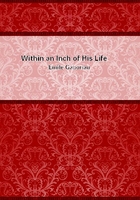
第123章 XXIII.(5)
As to the rest, that amounts to nothing. There is the water in which M. de Boiscoran washed his hands when he came home, and in which they have found traces of burnt paper. We have only to modify the facts very slightly to explain that. We have only to state that M. de Boiscoran is a passionate smoker: that is well known. He had taken with him a goodly supply of cigarettes when he set out for Brechy; but he had taken no matches. And that is a fact. We can furnish proof, we can produce witnesses, we had no matches; for we had forgotten our match-box, the day before, at M. de Chandore's,--the box which we always carry about on our person, which everybody knows, and which is still lying on the mantelpiece in Miss Dionysia's little boudoir.
Well, having no matches, we found that we could go no farther without a smoke. We had gone quite far already; and the question was, Shall we go on without smoking, or return? No need of either! There was our gun; and we knew very well what sportsmen do under such circumstances.
We took the shot out of one of our cartridges, and, in setting the powder on fire, we lighted a piece of paper. This is an operation in which you cannot help blackening your fingers. As we had to repeat it several times, our hands were very much soiled and very black, and the nails full of little fragments of burnt paper.""Ah! now you are right," exclaimed M. Magloire. "Well done!"His young colleague became more and more animated; and always employing the profession "we," which his brethren affect, he went on,--"This water, which you dwell upon so much, is the clearest evidence of our innocence. If we had been an incendiary, we should certainly have poured it out as hurriedly as the murderer tries to wash out the blood-stains on his clothes, which betray him.""Very well," said M. Magloire again approvingly.
"And your other charges," continued M. Folgat, as if he were standing in court, and addressing the jury,--"your other charges have all the same weight. Our letter to Miss Dionysia--why do you refer to that?
Because, you say, it proves our premeditation. Ah! there I hold you.
Are we really so stupid and bereft of common sense? That is not our reputation. What! we premeditate a crime, and we do not say to ourselves that we shall certainly be convicted unless we prepare an /alibi/! What! we leave home with the fixed purpose of killing a man, and we load our gun with small-shot! Really, you make the defence too easy; for your charges do not stand being examined."It was Jacques's turn, this time, to testify his approbation.
"That is," he said, "what I have told Galpin over and over again; and he never had any thing to say in reply. We must insist on that point."M. Folgat was consulting his notes.
"I now come to a very important circumstance, and one which I should, at the trial, make a decisive question, if it should be favorable to our side. Your valet, my dear client,--your old Anthony,--told me that he had cleaned and washed your breech-loader the night before the crime.""Great God!" exclaimed Jacques.